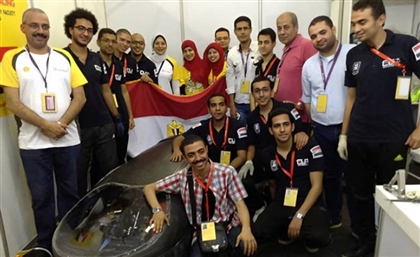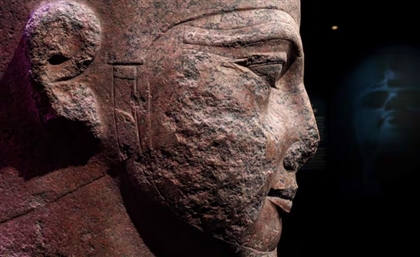Hend Abou El Seoud: An Emblem of Egyptian Television's Glory Days
From partying with stars Abdel Halim Hafiz and Om Kalthoum, to creating media trends and donning couture in the swinging 60s, the ex-Vice President of Egyptian State Television is a pioneer, feminist icon and fierce grandmother of Rahma Zein El Din. Together they take a trip down memory lane...
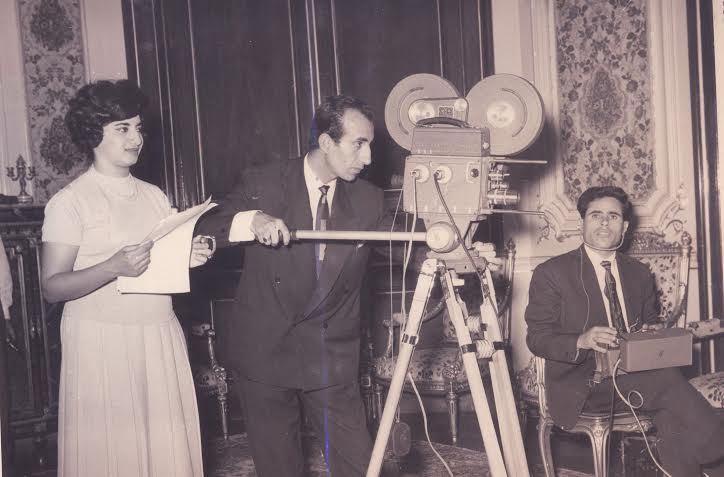
I sat watching a Leila Mourad movie as she sang by a beach in Alexandria, oozing elegance and beauty. I must have watched this movie a hundred times. It's always intriguing that these black and white films are so gripping, even in 2015, and I realised it was because these movies exposed the splendour of Egypt during its golden days. I was terribly curious; could this really have been their everyday life or was it just glamourised on screen? All these beautiful women, endless nights, dapper men, high spirits and dancing; what was it really like during Egypt's golden age? I went straight to horses mouth - ex-Vice President of Egyptian State Television, Hend Abou El Seoud. Otherwise known as my grandma.
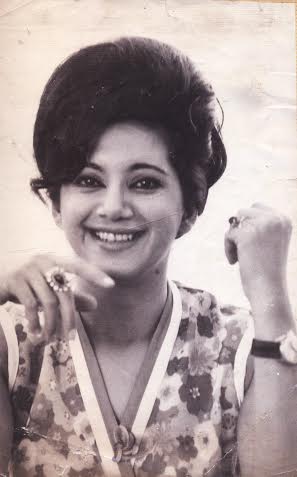
My grandmother sits cigarette in hand, exuding charisma and charm, eyes glittereing as I prop a pile of old albums in front of her; “Look how short this skirt is! Ah, your grandmother was quite naughty,” she says opening the first page, come face-to-face with a younger her in a white mini. We must have sat there for hours looking through pictures of her with actors, singers and politicians alike. Having been a main honcho at Maspero, she has a wealth of stories that sound like fairy tales, thanks to her incredible storytelling skills - she was, after all, at the helm of the Egypt's creative epicentre.
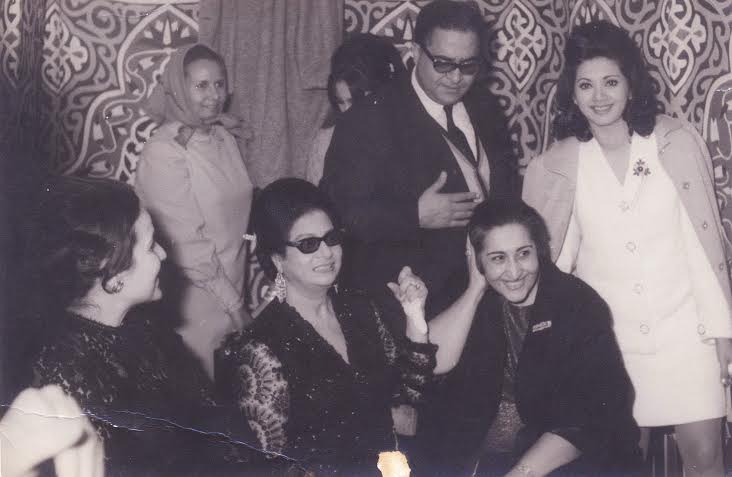
Her and my grandfather were one of Egypt's original power couples, with him being Editor in Chief of Al Gomhoriya newspaper - but they hadn’t started out like that.P“people were always intrigued by us. They treated us like stars but, at the end of the day, we were simply government employees with a salary of 13 LE...I remember how happy I was when my salary was raised to 25LE... We had a party!” she remembers fondly. She speaks about the lavish nights when celebrities gathered at their home, and everyone showed off their style.“Our house in Zamalek was always open. and our neighbour was a famous composer. We were surrounded by the rich and famous. Even the days when we had no money, our house was always open. Life was simpler then...Your grandfather sold the car to marry me.”
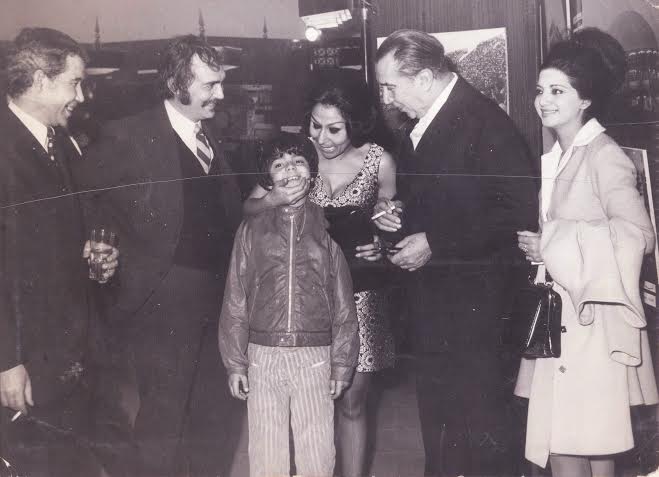
As we continue look through the black and white mementos, preserved in leather bound albums, my granmda remembers exactly what she was wearing - the colours, the materials, the stores. Even who did her hair. “Oh, George the Greek! He always crafted the best chignons. Then there was and Ghareeb of course...” I point out a picture where she’s sitting with the legendary actor and singer Abdel Halim Hafez, “Yes he often sang to us... And, oh, check out my up-do here! I was wearing red chiffon that night.”
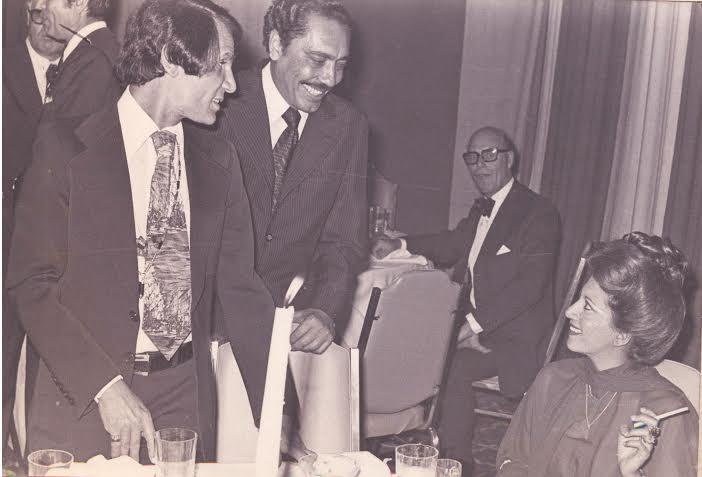
Though the strongest woman I know, she was really a world of harmonious contradictions. A party girl that’s religious, a hard working mother with a love of fashion; a one of a kind enigma. She remembers her dressmakers from Turkey, Italy and beyond, a cosmopolitan Cairo where “you had all these great Jewish couturists in Soliman Pasha Street. It was so difficult to get an appointment with them...Rachel and Golson, they were called. The newest fashion would be in Egypt before France.”
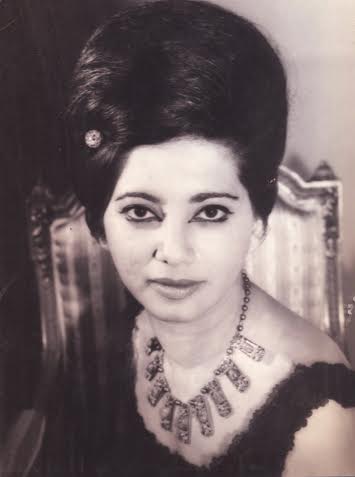
But aside from all the glamour, the question remained - what was life really like back then? How was working state television in the heyday of it all? My grandma first started working as an intern in the Middle East News Agency (MENA), going on to the International News Service which was in the same building as Al Gomhoriya, “that’s where I met yourgGrandfather and one of his friends got me a job as assistant director on state TV, which they were still building up...It's ironic that state television was built around its news department, when you compare it to today. I was really good with setting up lighting and one time, during a rehearsals,t there were officers inspecting, I was concentrating so hard on the work when they started chatting in the background so I snapped at them! I thought for sure I was going to get fired, but I guess being officers they appreciated discipline."
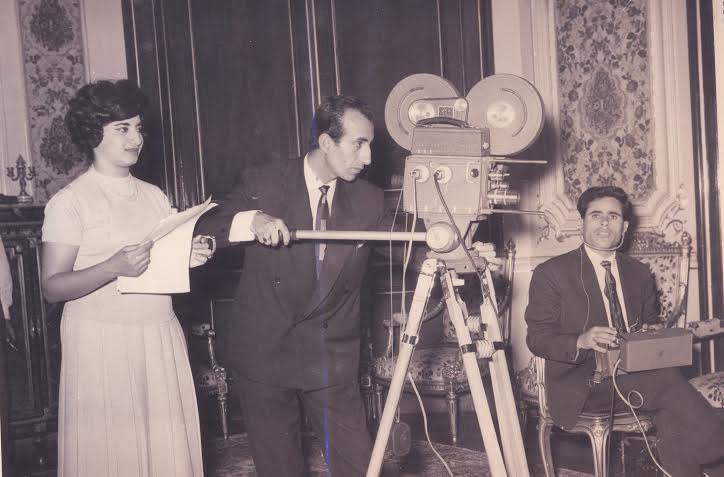
After working as assistant director, she went on to become an anchor following auditions where she was told to tell a story to the camera; “There were so few of us. It was so different from what you see now as Maspero is the workplace of nearly 40,000 people. And sure there was competition between us...but it was healthy and showed in our work.” She pauses for a minute, lost in her memories. “You’ve taken me back so many years,” she says finally.
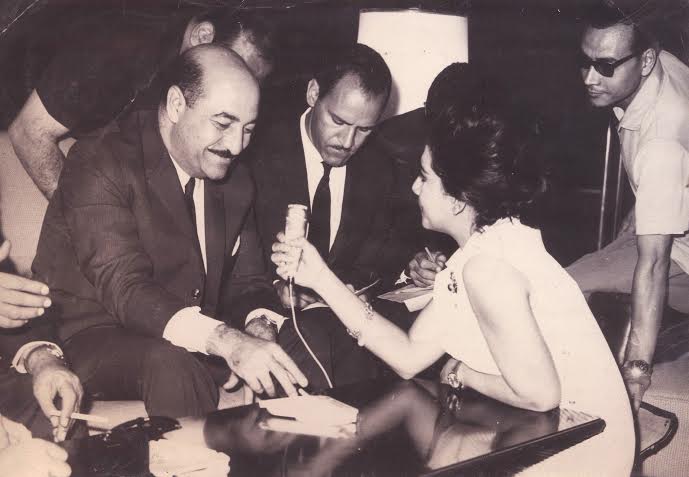
Her hit show Gawlet El Camera (The Camera’s Journey) was a collaboration with her husband. “There was a library filled with footage, some very short and random. We decided to make use of that by creating a show that showed the journey of our cameras using what we had. I remember telling your grandfather that it would be strange but he said that this would make the programme, rich, fast and interesting. He was right - it was a hit because we presented the bold, the new and the strange. I remember my first two minute feature was about computers. Back then the computer was a whole room! I remember I took your mother to work once and filmed her playing with cubs...Her dad would write up the script and there you had a whole story. We also thought of the idea of having of playing with the traditional order of programming; I'd appear first with and introduction to capture the audience and then it would go to the opening credits.”
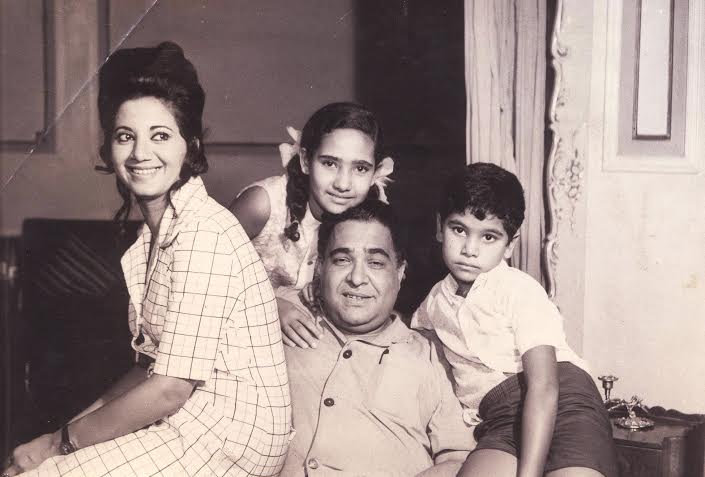
Her face suddenly turns solemn. “Rhe hardest day was when my father passed away. He was my role model and always encouraged me, taking me to spend summer in Egypt’s beautiful beaches, back when we had gorgeous summer homes with high ceilings. I knew the show must go on the day he passed away...So I decided to present the life of a clown who had lost his family to an accident but had to go on to perform. At the end of the day, he ended up giving his best performance and I felt I was telling my own story...The life of an entertainer.”
She snaps back as she looks through more pictures of entertainers. “We had such a strange life. Composer Baleegh Hamdy was our neighbour and he composed President Abdel Nasser’s funeral music at our house. We were such a healthy mix of politicians, musicians, intellectuals, actors and people from all corners of the world; Egypt was a melting pot of talented individuals. Working in state television was an honour and exposed me to the most interesting individuals from secret service personnel, to stars and people with interesting stories to tell. It was sometimes so amusing seeing how famous we were yet, at times, penniless for days. But life remained exciting, joyful and filled with parties because we weren’t high maintenance. Somehow we just managed and were invited to travel the world."
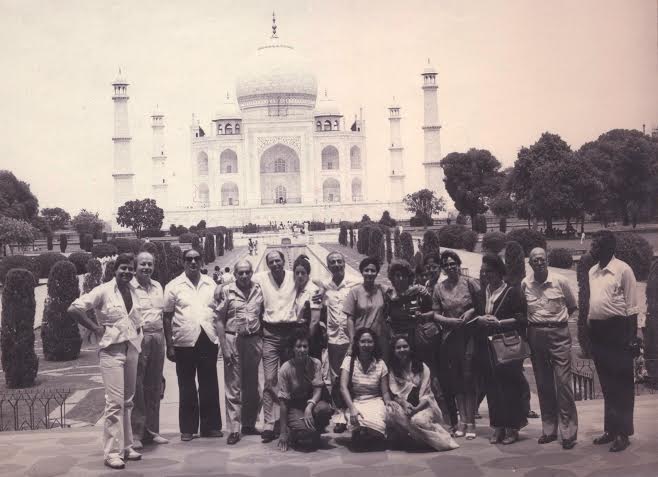
Talking about icons like Shadia and Om Kolthoum her face lights up once more. “Once we were at one of Om Kalthoum’s concerts and Mohsen stood up after she’d finished and called out ‘encore!’ I think she wanted to kill him! When we went to meet her after, she commented on his rather large physique: ‘Oh Mohsen, they ought to bring you into the concert hall in stages,’ she teased.”
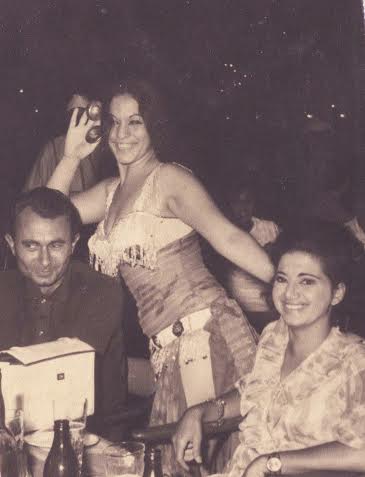
When it came to censorship, my grandmother explains that they “would try and go around it but it didn’t always work. I remember presenting the movie Battle of the Bulge -World War II. It very controversial so I thought I'd balance it out by interviewing an army spokesman. The director was so nervous and during the live interview we found an army officer wandering around. Of course the director sold me out on the spot telling him it was all my idea... That was until he found out that the president was watching, liked the movie and wanted it on!"
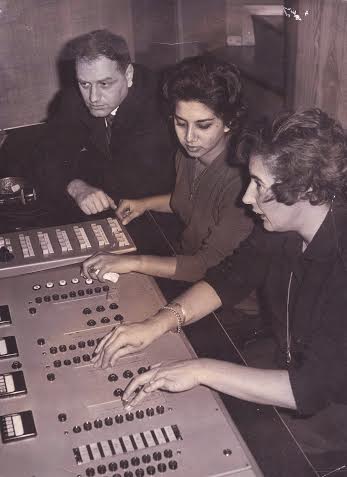
Eventually promoted to head of Channel 1, she explains her relationship with other managers. “Of course we were trying to outshine one another but it worked to the institution's benefit; our work was our number one priority, not at all like what you see now. We were a female dream team with Salwa Hegazy, Amany Nashed, Leila Rostom and Soheir Itriby. I remember the talented Sohier El Itriby as head of Channel 2. She was the one that brought in The Bold And The Beautiful. I had to get something out as well! I already had good relations with the Japanese Embassy after having portrayed a Japanese women who had no hands, three children and was a successful trico knitter and had managed to create a successful business. I went to them to give us the rights to the show Oshin but they asked for $300,000 - a HUGE sum back then. So I sought out the ambassador and played out some politics...I mean, with The Bold and The Beautiful being American, I suggested that they may wish to present themselves on Egyptian television as well... It worked and we got it for free! Now I don’t watch state television and that makes me sad. We worked so hard..."
It was only when we reach the last album when my grandmother admits that she missed youth, the adventure and being recofnised and stopped in the street. “We changed the time of my programme at one point because the shop owners complained to me they wanted the show on a Sunday," she giggled, turning the final page. Her feelings of nostalgia, sadness and happiness are almost tangible as she lights up another cigarette. "Well, c'est la vie..."






